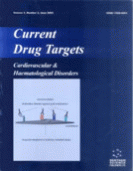Abstract
Ion channels play a pivotal role in blood pressure regulation. Amongst them, much attention has been directed to dihydropyridine (DHP)-sensitive (L-type) voltage-dependent Ca2+ channels (VDCCs) and iberiotoxin-sensitive Ca2+-dependent K+ channels which are distributed over the whole vascular tree and contribute to vascular tone regulation. Recent advances in vascular electrophysiology have, however, added novel and interesting molecules to this repertoire. In small mesenteric arterioles, the predominant VDCC phenotype is not L-type but DHP-insensitive, high voltage-activated VDCCs that exhibit unique properties distinguishable from those of hitherto-known VDCCs. Surprisingly, mibefradil, a well-known T-type selective blocker potently inhibits these channels, and the use of this blocker has indicated that Ca2+ entry through these channels may be one of the important determinants of peripheral vascular tone. Another new candidate likely involved in blood pressure control is the mammalian homologue of Drosophila transient receptor potential (TRP) protein, including TRPC4 and TRPC6. Experiments in genetically engineered TRPC4-deficient mice have suggested that expression of TRPC4 is indispensable for agonist-induced Ca2+ entry in endothelial cells and production of nitric oxide and vasorelaxation. TRPC6 is likely to contribute to sustained Ca2+ entry into vascular smooth muscle cells activated by stimulation of sympathetic nerves and elevation of intravascular pressure. Antisense oligonucleotide experiments have suggested that this protein is an essential component of ?1-adrenoceptor activated and mechanosensitive cation channels in some vascular tissues. This review overviews what is known about the role of ionic channels in blood pressure control with main focus on the above-mentioned new molecules as promising targets for drug discovery and development.
Keywords: vascular tone, dihydropyridine-insensitive, resistant arterioles, mibefradil, trp superfamily, nitric oxide, adrenoceptor, intravascular pressure
 19
19













